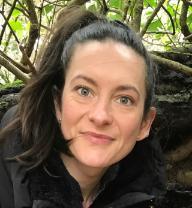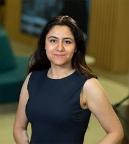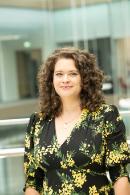About

Over 2.5 days, the symposium will feature a blend of technical sessions, social science discussions and lived human experience sessions, ensuring a holistic exploration of ethics and AI.

Day 1 will set the stage, framing our understanding of AI and examining the current state of AI delivery, public discourse, and the human experience of inequality. Sessions will focus on social as well as technical aspects of AI development and delivery, as well as issues of equality and accessibility in information sharing. A panel discussion on the use of AI in research and teaching will conclude Day 1, featuring Glasgow students, senior University Glasgow leadership, external academics, and AI professionals. By participating in Day 1, you will have the opportunity to contribute to a white paper output (focussed on the panel narrative).
On Day 2 we will explore approaches to tackling inequality in AI from both technical and human impact perspectives. Sessions will include discussions on novel and best practice approaches to university curriculum development, AI support and technical strategies for enhancing AI equity. Group workshops on building ethics and inclusion into AI will take place, covering topics such as policy, social participation and access, race, gender, disability, technical aspects and education. Recommendations from each group will be gathered to form actionable priorities.
Day 3 will focus on assimilating the insights from Days 1 and 2. Participants will collaborate to co-create a vision for an ethical framework for inclusive AI, ensuring that the resulting framework reflects the collective insights and values of the attendees. This effort will involve outlining actionable steps as well as coming up with actionable priorities for the university and other academic institutions. Additionally, participants will have an opportunity to support the co-development of an online interactive course on the ethical use of AI for undergraduate students.
Join us! Whether you join us physically at the University of Glasgow ARC or online, your contribution is invaluable. The symposium is open to all, including staff, students and the public, free of charge. This inclusive approach aims to enrich the conversation by incorporating diverse perspectives and experiences and reflects our commitment to making sure that the conversations around AI are as accessible and diverse as possible.
For a more detailed programme and to learn about our exciting line up of speakers, please visit our programme page.
The Lovelace-Hodgkin Symposium is financially supported by the Centre for Data Science and AI, University of Glasgow and external partners, LearnSci.

Dates: 2nd to 4th October 2024 at the Advanced Research Centre and online
To ask a question or to join the mailing list, please email us here.
You can also tweet us using #glasgowAIethics
Meet the team
 Dr Ciorsdaidh Watts (Co-creator of the Lovelace-Hodgkin Symposium)
Dr Ciorsdaidh Watts (Co-creator of the Lovelace-Hodgkin Symposium)
Hi. I’m Ciorsdaidh (pronounced Kirsty, it’s a Scottish Gaelic name) and I work as a Senior Lecturer in organic chemistry at the University of Glasgow. My background is in medicinal chemistry, particularly cancer research. I also love teaching and pedagogy, having a particular interest in technology-enhanced learning. I am a LearnSci Digital Champion, having worked with this partner industry to develop and deliver online, interactive lab learning across undergraduate teaching in chemistry.
I am also an advocate for the inclusion of ethics within scientific discourse and higher education, and for this reason, one of my role models in chemistry is Dorothy Hodgkin. Not only did she pursue and achieve excellence in her field, she also considered real people and their experiences and was a proponent of social justice and equality throughout her life. I believe it is essential to think critically about any emerging technology and consider the possible impacts on society, especially marginalised and minority groups. As a mother of two gorgeous children (one of whom lives with significant disabilities), as a scientist and human, questions of inclusion and equality are important to me and have eventually crystallised into the idea of the Lovelace-Hodgkin Symposium. You can follow me on X/Twitter by looking for my @Ciorsdaidh handle.
 Dr Lydia Bach (Co-creator of the Lovelace-Hodgkin Symposium)
Dr Lydia Bach (Co-creator of the Lovelace-Hodgkin Symposium)
As the Equality, Diversity and Inclusion Officer within the College of Science and Engineering, I am passionate about improving my work environment, making it inclusive for all irrespective of their background. I see myself as an agent of change, leading organisational and cultural transformation by understanding data, highlighting disparities, encouraging dialogue and setting up initiatives on crucial equality issues.
I see AI as both a tool and a challenge in the pursuit of equality and diversity within academia and beyond. While AI has the potential to enhance accessibility in education and personalise learning, for example, it also poses ethical dilemmas and risks exacerbating existing inequalities. The Lovelace-Hodgkin Symposium will be an opportunity to consider the importance of ethical considerations and inclusive practices in the development and use of AI across society. My hope is that we can gain a greater understanding of how we can use AI as a force for positive social change to create a more equitable inclusive society. You can follow me on Twitter/X by searching for @LyLuBach.
Prof Ana Basiri (Director of the Centre for Data Science and AI)
I am the Director of Centre for Data Science and AI at the University of Glasgow. I hold a Chair in Geospatial Data Science and a UKRI Future Leaders Fellow. I am also leading an interdisciplinary team working on developing theoretical and applied solutions that consider unavailability and biases in data as useful sources of data to make inferences about the underlying reasons that caused missingness or biases. My Twitter/X handle is @AnahidBasiri.
of Glasgow. I hold a Chair in Geospatial Data Science and a UKRI Future Leaders Fellow. I am also leading an interdisciplinary team working on developing theoretical and applied solutions that consider unavailability and biases in data as useful sources of data to make inferences about the underlying reasons that caused missingness or biases. My Twitter/X handle is @AnahidBasiri.
Dr Sarah Henry (Manager: Centre for Data Science and AI)
I received my PhD from the University of Glasgow in Molecular Biology and worked as a postdoctoral researcher in the UK and US on artificial photosynthesis.
Following a move to Scottish Enterprise as a grant appraisal officer, I returned to University of Glasgow to manage a core facility in mass spectrometry, nucleic acid sequencing and informatics. I then resumed her analytic career by working at Scottish Water as a data modeller before taking the manager role at the Centre for Data Science and Artificial Intelligence.
Student Interns
We are proud to introduce our new team of student interns, supporting the symposium and co-creating the course on ethical AI:
Annie Sassen
My name is Annie Sassen and I am the Communications intern within the AI Ethics Course Development team. I am a former fourth-grade teacher from Chicago, IL studying for a Master's in Children's Literacies.

Within education, the conversation surrounding AI has become increasingly prevalent. I am delighted to join this team and support the creation of a module and symposium for students and staff within the university to engage on this topic.
Abbie Thorpe
I’m Abbie, I’m 21 and studying law in my 4th year at university! So far within my degree, I have been most drawn to ethical arguments, so AI is an extremely relevant and contested topic when discussing morality.
I believe we are all aware of the rapid growth of AI, but not all of us talk about it — and we should be talking about it. I look forward to learning more and passing on what I know!
Nick Smoliak
Hello, I'm Nick. I moved from Canada to the UK in 2019 and initially worked as a chef in London. During Covid, I retrained as a physics teacher, which I did for two rewarding years.
Last year, my wife and I moved to Glasgow, where I studied Nuclear and Environmental Physics on the COP26 climate leadership scholarship. Now, I’m about to begin a PhD with the Deep Nano research group as part of the ElectroMed project, focusing on improving biosensors using machine learning and device simulation methods.

My background in teaching and current research on AI led me to engage with the Lovelace-Hodgkin Symposium on AI ethics and the overall pursuit of a framework for the ethical use of AI in higher education and research.
Ava Scott-Nadal
My name is Ava Scott-Nadal and I'm a fourth-year Film and Television with Philosophy student. I've been enthralled by contemporary ethics during my degree and have recently finished a summer course in Bioethics at Yale university. Prior to this I was a project assistant for a charity that focuses on promoting AI global governance, in light of its rapid and often unpredictable development. I'm excited to bring these practical skills to the role.
I've been drawn to AI ethics because of how it interacts with healthcare, emerging technologies, and media. I believe AI really does have the ability to change the world. However, it should be approached with strong considerations of equality, fair representation, and inclusion.
I look forward to promoting these concepts during my role!


